Sustainable Agriculture a system to produce healthy food
Agriculture a system to produce healthy food
Activities in agriculture make use of natural resources, such as water and soil, to supply human beings with food and raw materials for clothing, which is why it is a key aspect in the process of sustainable development, as it is at stake largely the non-renewable resources vital for the human being.
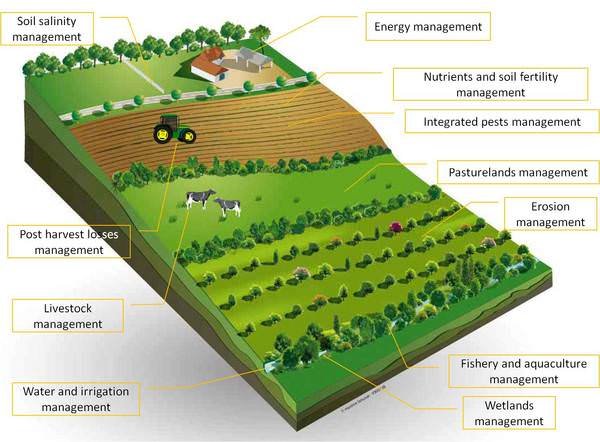
Source
Currently, countries are aware that it is necessary to turn their agricultural sectors into sustainable ones. The demand for agricultural goods, especially food and fiber, will surely increase; In fact, current projections suggest that by 2025 there will be three billion more people to feed and clothe. However, the possibilities of sustainable development will be increasingly far away if the processes of environmental deterioration are not contained and reversed; mainly, deforestation, forest fires, soil degradation, overexploitation, water pollution and loss of biodiversity.
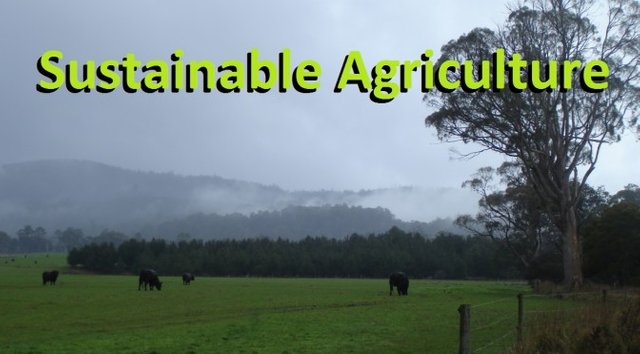
Source
Sustainable agriculture
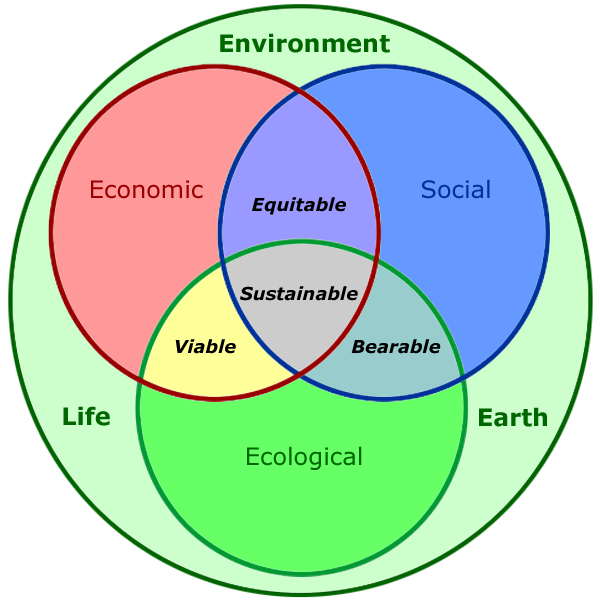
Source
Sustainable agriculture is the one that, in the long term, promotes the quality of the environment and the base resources on which agriculture depends; provides the fibers and food necessary for the human being; It is economically viable and improves the quality of life of farmers and society as a whole. When it is said to be long term, it is because it is a production system that will guarantee its permanence over time, to benefit society, with the adequate supply of food at reasonable and profitable prices.
"This practice will allow the production of food and vegetable fibers without jeopardizing the conservation of natural resources or biological and cultural diversity for future generations."
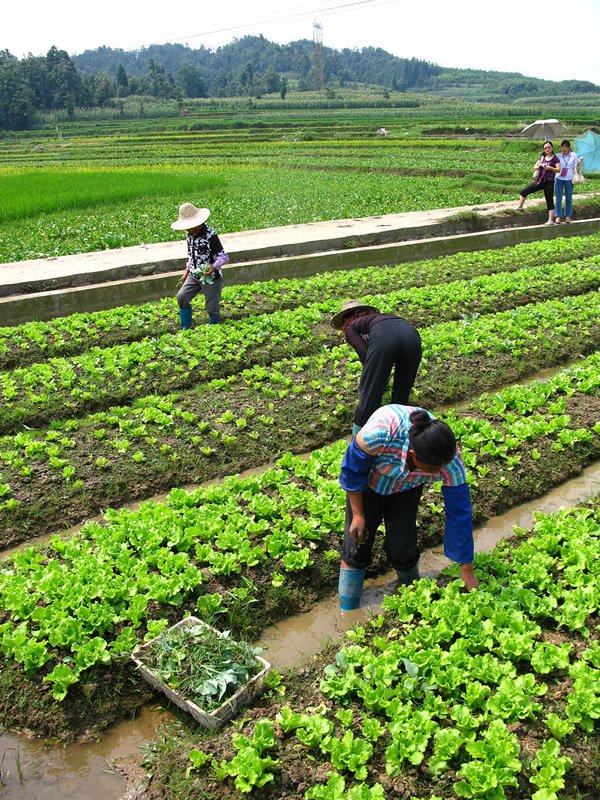
Source
Characteristics of agriculture
Sustainable agriculture does not refer only to the economic, but also to the ecological and social. Therefore, in almost all the definitions the following elements are presented:
• The improvement and conservation of fertility and soil productivity with management strategies (low cost inputs).
• The satisfaction of human needs.
• Economic viability.
• Equity and improvement of the quality of life of farmers and society.
• The minimization of impacts, protection and improvement of the environment.
• The durability of the system in the long term instead of the short-term profitability.
That is, sustainable agriculture must encompass the economic, social and environmental dimensions.

Source
The importance of sustainable agriculture
It is important to adopt sustainable agriculture worldwide, to protect natural ecosystems as food production increases to feed a world population, there are many projections, which estimate that the world population will reach 9.7 billion by 2050, and these would be the most important reasons why there is a need to double world food production, but at the same time reduce the area of land under cultivation to protect natural ecosystems.
- Sustainable agriculture is respectful of ecosystems, allowing the production of different types of cereals such as corn, rice and wheat, as well as guaranteeing 42.5% of calories and 37% of the proteins that humans need for their healthy development .
- It is an activity that helps promote the growth of natural ecosystems.
- It allows healthy crops, without the intervention of external products, by not using artificial chemical products.
- Help to reduce polluting actions, to cope with climate changes.
- It allows the optimization of resources, for example, arable land, water and nutrients, this from the agronomic point of view and from the commercial point of view, access to more markets due to the growing campaigns of awareness of consumption of sustainably produced food.
But the importance of sustainable agriculture does not lie in business productivity. It is about becoming aware that the planet we mistreat is the planet that allows us to live.
Sustainable crops
For a type of crop to be sustainable, it has to be low cost, this allows it to be accessible to all, and one of the most important aspects of organoponic crops is that high quality soils are not needed since through the treatment nutritional that is given to the earth using organic matter of animal or vegetable origin, you can get more fertility.
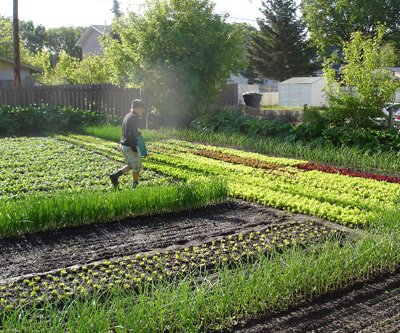
Source
Benefits of sustainable agriculture
Sustainable agriculture complies with the principles of sustainability, that is, it is capable of maintaining or improving the environmental quality of the resources on which it depends, such as soil, biodiversity and water. In addition, this type of agriculture is economically feasible and improves the quality of life of the producer, his environment and society.
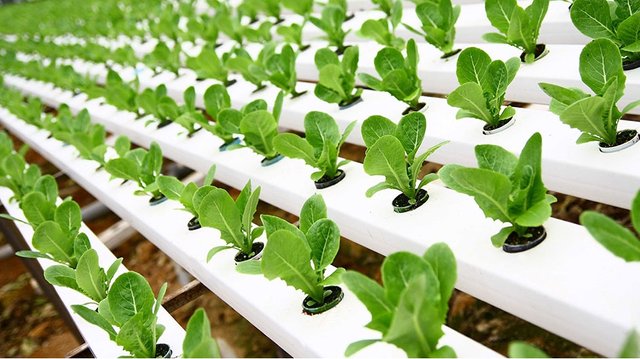
Source
Another benefit of sustainable agriculture is that through its practice, it will improve the quality of life of farmers who practice it and the environment that surrounds them while promoting recycling, reusing crop residues previous and manure as fertilizer. This type of agriculture also protects native species, both animals and plants; it stimulates soil fertility and protects water resources.
Management of natural resources
The management and treatment of the soil is one of the main contributions of sustainable agriculture to preserve the renewable resources of the productive systems. Among the main renewable resources that every farmer must preserve are soil, air, water and biodiversity.
Drip irrigation:
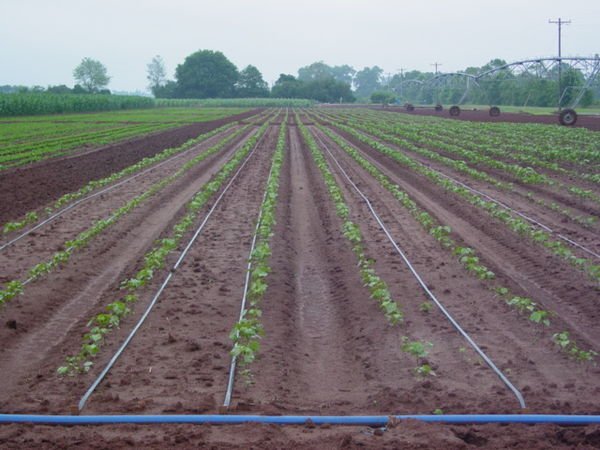
Source
One option is sustainable cultivation. Developing together with farmers new techniques to produce food without aggravating the costs to the environment is an option. In itself, producing less meat would help reduce the environmental impact (by using the grain for livestock consumption in other forms of human nutrition, as well as investing with better efficiency the water and the land destined for its maintenance): today produce One kilo of meat costs an average of 10 kg of food and 15,000 liters of water.
You have a minor misspelling in the following sentence:
It should be in the long run, instead of in the long term,.